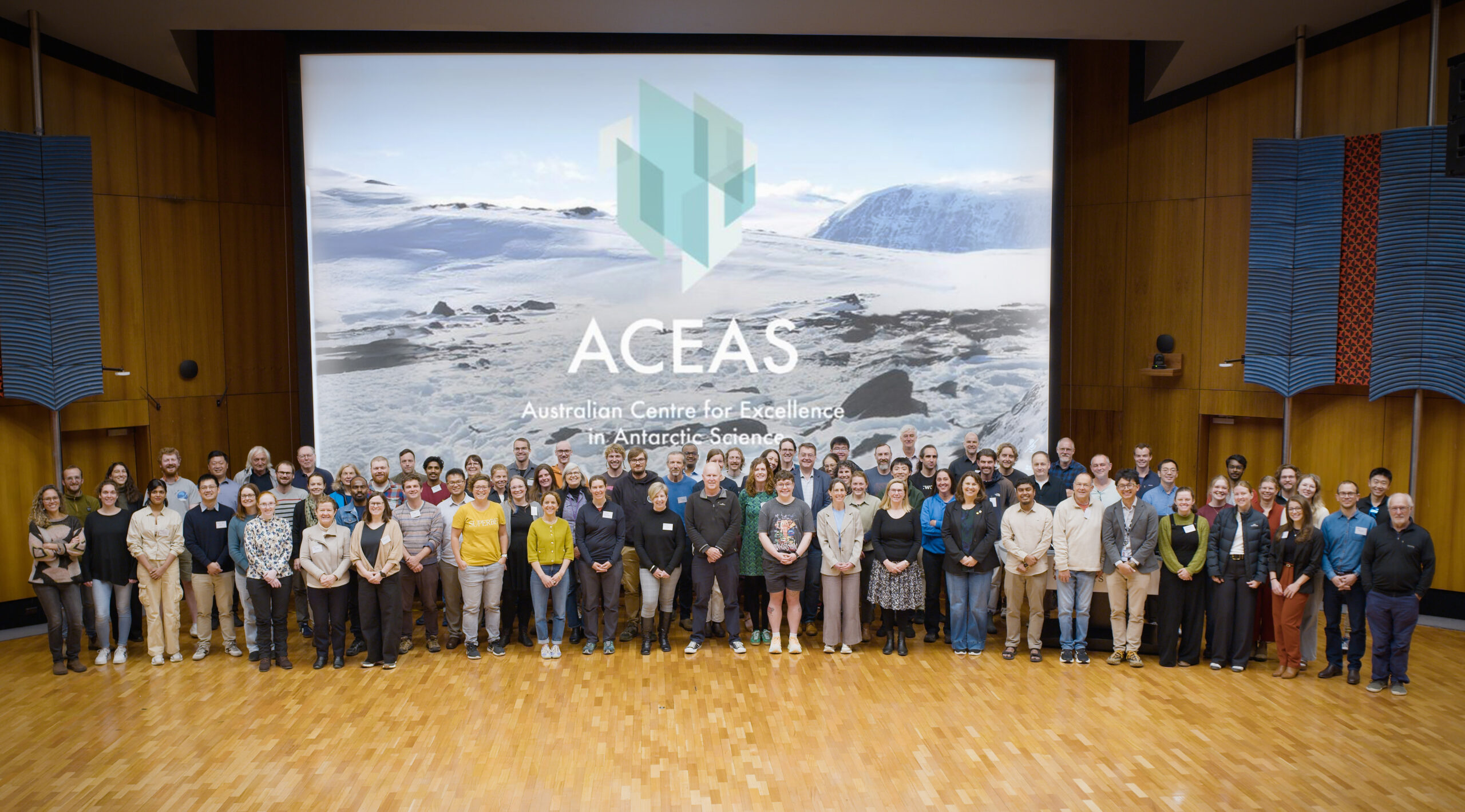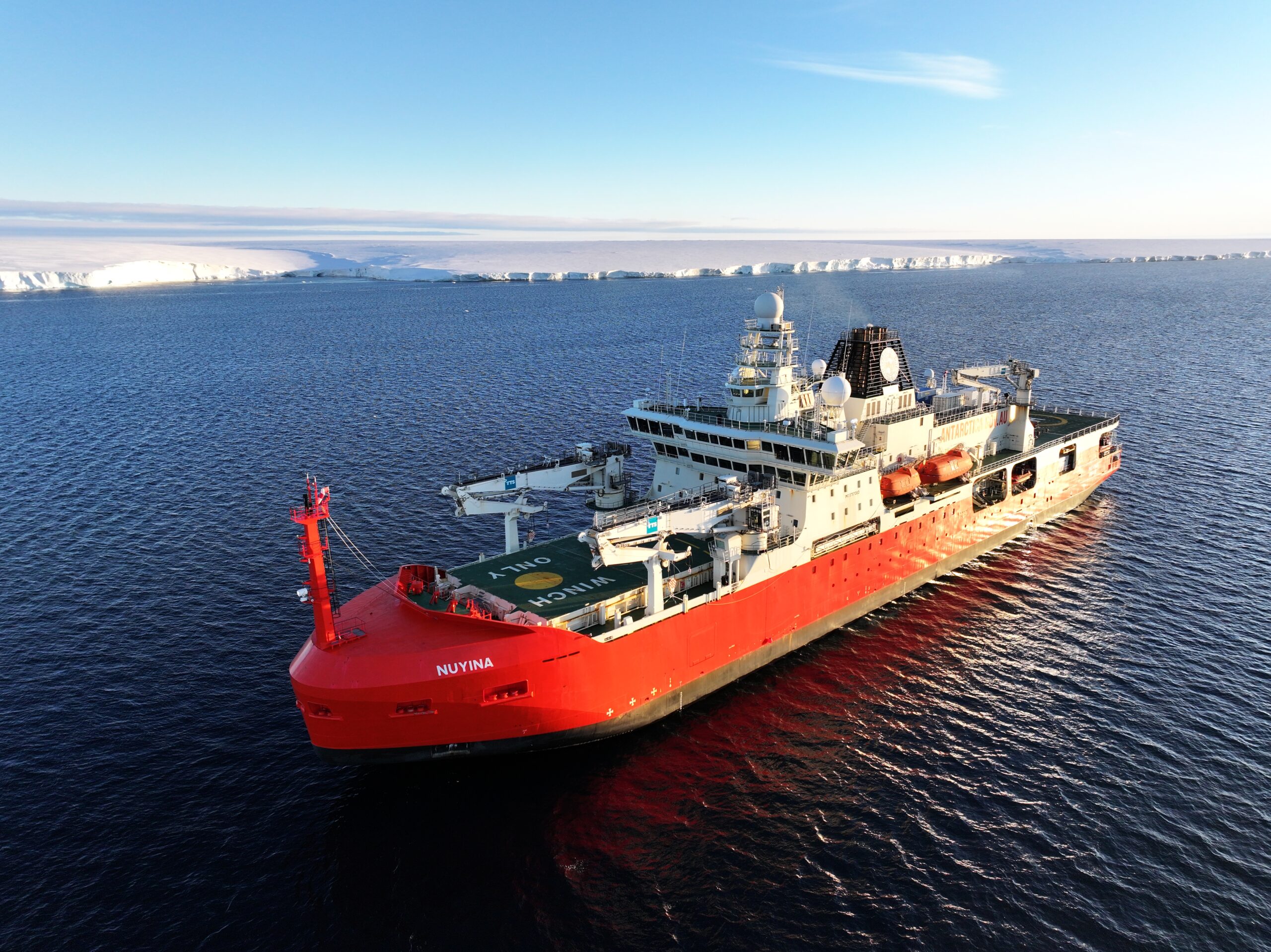
ACEAS Research Forum 2025: a national gathering of Antarctic science excellence
More than 140 researchers from across Australia gathered in Hobart last week for the Australian Centre for Excellence in Antarctic Science (ACEAS) Research Forum, held from 5 to 7 November at the University of Tasmania’s Sandy Bay campus.
The three-day event showcased the breadth and depth of ACEAS’s interdisciplinary research aimed at understanding the climate risks emerging from Antarctica and the Southern Ocean, with keynote addresses, science sessions, poster presentations and collaborative discussions spanning the Earth–Ice–Ocean–Atmosphere system.
ACEAS Director Professor Matt King (University of Tasmania) opened the Forum with a welcome and overview, followed by keynote presentations from Professor Nerilie Abram (Australian Antarctic Division), who shared evidence of emerging abrupt changes in the Antarctic environment, and Professor Michael Meredith (British Antarctic Survey), who spoke about the challenges and opportunities ahead in Antarctic science – including how to improve the scientific process and the importance of enhancing literacy and uptake of Antarctic science among policymakers, business leaders, educators and the public.
The Forum’s science sessions explored topics ranging from tectonic influences on East Antarctic glaciers to the dynamics of ocean gyres and abyssal circulation. Highlights included new insights into the Denman Glacier’s bed topography – drawn from recent ambitious fieldwork as part of the Denman Terrestrial Campaign and the Denman Marine Voyage – sedimentary records from the Cook Glacier, and the role of subglacial sediment in shaping ice shelf melt.
Poster sessions and lightning talks gave early career researchers a platform to share their work, while themed discussion groups tackled future priorities in Antarctic research, interdisciplinary collaboration, and the integration of ocean models and ecosystem data.
The second and third days of the Forum delivered a rich program of scientific exchange, collaboration and forward-looking discussion. Thursday featured dynamic breakout sessions, where researchers explored interdisciplinary collaboration in the Denman Terrestrial and Marine Voyages, advances in ocean modelling, Antarctic mass loss and sea level rise, and future research priorities. Afternoon sessions delved into ocean–atmosphere interactions, including the influence of Antarctic meltwater on global climate and the dynamics of downslope flows.
On the final day, the focus shifted to biology, ocean and climate, with sessions exploring bathymetric uncertainty, feedbacks between ice shelf melt and ocean circulation, and the role of downslope flow dynamics in shaping Antarctic marine ecosystems. Keynote speaker Professor Sharon Robinson (University of Wollongong) shared lessons from geo-engineering on how ozone depletion affects southern hemisphere environments. The day also featured a compelling Legacy and Benefit Presentation highlighting the long-term impact of ACEAS research, followed by a forward-looking panel discussion on engagement beyond academia, bringing together diverse perspectives from across the research, media and policy landscapes.
“The Forum has been a powerful reminder of what’s possible when we bring together diverse expertise, bold ideas and a shared commitment to understanding Antarctica,” said Professor King. “It’s been energising to see the depth of collaboration and the quality of science on display.”
The Forum reinforces ACEAS’s commitment to collaborative, cross-disciplinary science – laying the groundwork for future discoveries that will shape Australia’s response to a changing Antarctic.


